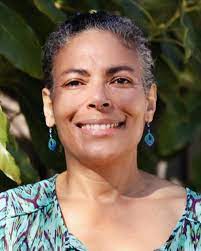Coordinating Curricula and User Preferences to Increase Participation of Women & Students of Color in Engineering
Sharon Tettegah, Ph.D.
CBSR Director

For several decades, academic institutions have received financial resources to broaden participation in engineering programs. Despite these funded recruitment and retention efforts, most engineering programs have achieved little improvement in the participation of women, students of color, individuals with disabilities, and other underrepresented groups. One hypothesis to explain this discrepancy is that the low representation of women and students of color in engineering results from the lack of accessibility of engineering curricula. To test this hypothesis, this project seeks to study engineering curricula and student preferences. Based on those results, it aims to develop a set of curriculum guidelines and models that may increase the alignment between engineering curricula and students' expectations and preferences for learning. These results have the potential to broaden participation of women and students of color in engineering.
NSF funded #1826632
Click here if you are interested in learning more about this study.
an Examination of the Relationship Between Identity and Academic Achievement in Science, Technology, Engineering, and Mathematics (STEM) in Black Undergraduate Students at HSIs
Sharon Tettegah, Ph.D.
CBSR Director
This multi-institutional study examines the relationship between identity and academic achievement in STEM involving Black Undergraduate Students at HSIs. We seek to determine the degree to which science identity is predictive of academic achievement. The primary objectives of the study are to determine the degree to which identity among Black undergraduate students in STEM courses is predictive of academic achievement and identify which social and personal attributes may contribute to the development of a positive identity in academically proficient students. Intersectionality will be used as a methodological lens to understand the intersections between multiple identities and STEM academic achievement.
Microbiomes of Kelp Community Organisms and Next-Generation Sequencing (NGS)
Paige M. Miller, Ph.D.
CBSR Affiliated Faculty
Marine Science Institute

My laboratory research aims to increase our current understanding of the ecology of giant kelp forests by using molecular and population genetic studies to gain new information about the complex relationships of the diverse biotic community that relies on this important primary producer. We are studying the microbiome of multiple kelp (Macrocystis pyrifera) community organisms through Next-Generation Sequencing (NGS) of the 16S amplicon for bioinformatic analysis. My contributions to this work have included successful DNA extraction and preparation of a 16S NGS library for analysis. I currently use multiple bioinformatic tools and pipelines to study the completed NGS library dataset, including RStudio, Phyloseq, Geneious Prime, and Qiime2. Our first paper publishing important findings from this research is currently “in press” at the journal Limnology and Oceanography Letters. I am also working with Watersipora, an invasive bryozoan, which we are using as a model for the dispersal of nonnative organisms on our coastline. To compare potential differences in dispersal, populations of the native scallop Crassadoma gigantea are also included in the study. At this time, we are processing DNA from over 20 populations of these organisms for whole genome sequencing and genotype-by-sequencing analysis with SNPsaurus. We have already received whole genome sequence datasets for scallops, which I am currently running through quality control and using for initial alignments. I am also developing a genetic marker for giant kelp (Macrocystis pyrifera) that could be used in diet studies to detect kelp in the gut of organisms and augment the current understanding of the role of kelp in the food web. Our lab has also just started two new studies, one on the population genetic structure of Silvetia compressa (aka rockweed, a brown alga) which is becoming threatened on our coastline, and another using metabarcoding of prey gut contents from four species of rock crabs to determine their diet and possible links to domoic acid poisoning.
